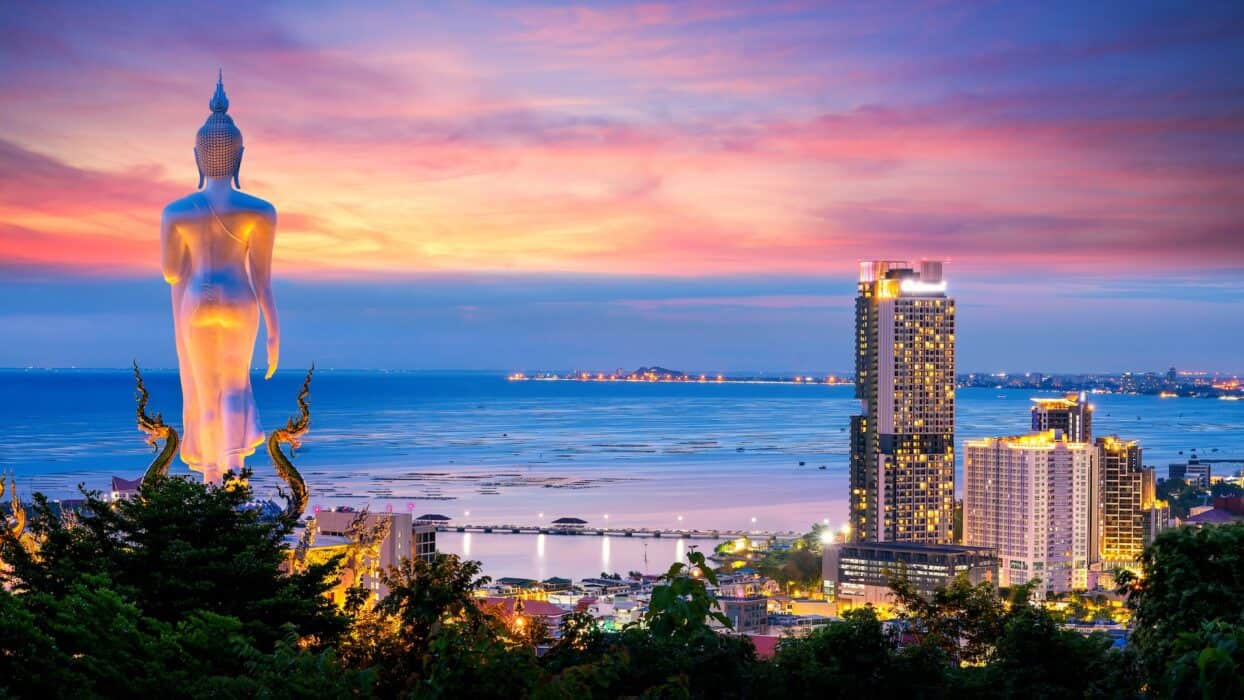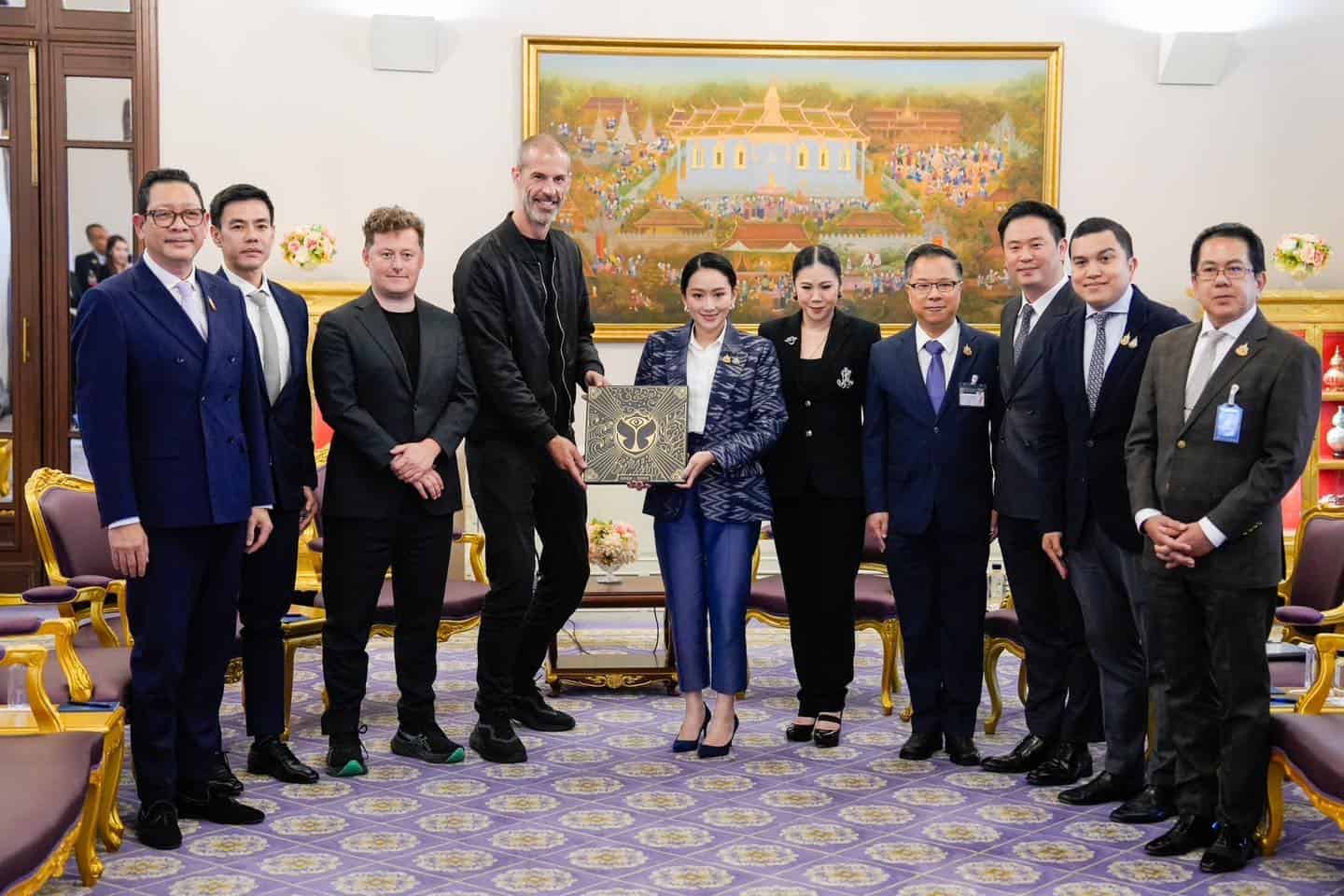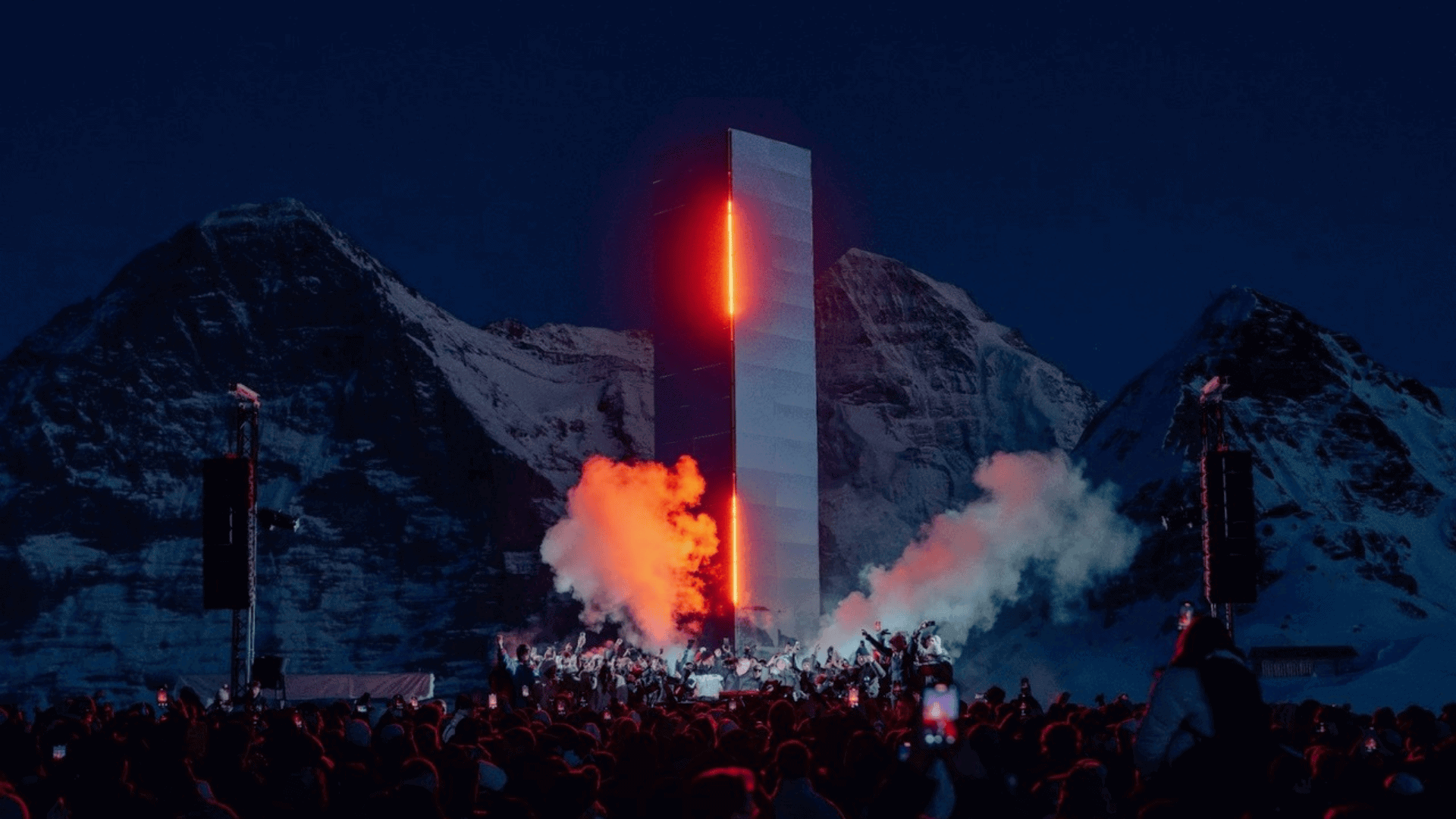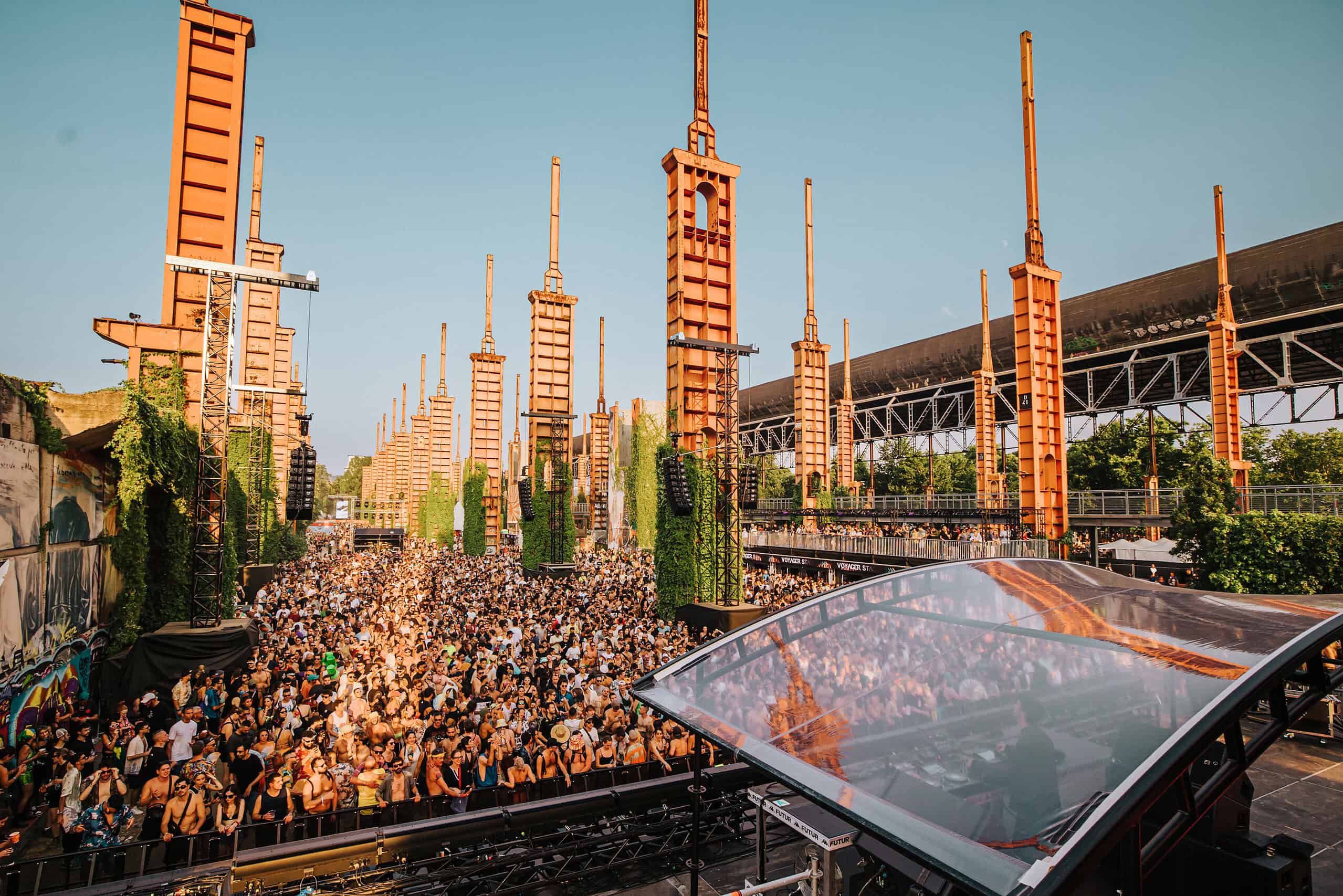Thailand Sets Stage for Historic Tomorrowland Debut in December 2026
Thailand confirmed as host for Tomorrowland 2026 in Chon Buri Province. PM Shinawatra meets festival executives to plan Southeast Asia's biggest EDM event.

Last Updated: ()
Tomorrowland Thailand 2026 is no longer just a dream — it’s fast becoming the must-see event that will put Thailand on the global festival map!
The world’s most celebrated electronic dance music festival is coming to Southeast Asia for the first time. Tomorrowland Thailand 2026 represents more than just another international event — it signals Thailand’s emergence as a major destination for global music tourism and cultural exchange.
On June 25, 2025, Thai Prime Minister Paetongtarn Shinawatra held crucial discussions with Bruno Vanwelsenaers, CEO of Tomorrowland International, at Government House in Bangkok. Their meeting focused on bringing the Belgian festival brand to Thai soil, marking a historic first for the region. While final contracts await completion, both parties confirmed that planning and negotiations continue to progress.
The Prime Minister’s social media announcement revealed the government’s ambitious vision;
“Thailand is not just a ‘event venue’ but we will be the ‘heart of the event’. We want that in every sector, every event of the festival, there are elements of Thai culture and Thai people as much as possible, so that Thai people can get the most benefit from this event.“
Cultural Integration Takes Center Stage in Festival Planning
This isn’t simply about importing a European festival format to Asian shores. The Thai government insists on deep cultural integration throughout every aspect of the event. Stage designs will incorporate traditional Thai aesthetics, local artists will share billing with international headliners, and authentic Thai cuisine will play a major role in the festival experience.
Prime Minister Shinawatra emphasized that this approach aligns with Thailand’s soft power initiatives, designed to share Thai identity with global audiences while supporting domestic creative industries. The festival serves multiple purposes; entertainment, cultural diplomacy, and economic development rolled into one massive undertaking.
The current administration builds on groundwork laid by former Prime Minister Srettha Thavisin, demonstrating government commitment spanning multiple political terms. This policy continuity reassures international partners about Thailand’s serious intentions regarding large-scale event hosting.
Chon Buri (Chonburi / ชลบุรี,) Province Selected as Official Festival Location
The Tourism Authority of Thailand (TAT) recently announced Chon Buri Province as the confirmed site for Tomorrowland Thailand 2026. This coastal region offers several practical advantages for hosting tens of thousands of international visitors.
Located approximately 90 minutes from Bangkok, Chon Buri provides easy access through three major airports; Suvarnabhumi, Don Mueang, and U-Tapao. The province features extensive coastline, established infrastructure, and large open spaces suitable for massive stage installations and crowd management.
Local economic impact projections look promising. TAT officials estimate the festival will operate under a five-year partnership agreement, with annual investment exceeding $10 million USD. This collaboration involves Tomorrowland International, private sector partners, and Thai government agencies working together to create sustainable festival infrastructure.
Hotel bookings, restaurant revenue, transportation services, and retail spending are expected to surge during festival periods. Chon Buri’s tourism sector anticipates significant growth as the province becomes synonymous with world-class music events.
Tomorrowland Event Academy: Building Thailand’s Festival Industry Expertise
Beyond the main festival dates, planners propose establishing a Tomorrowland Event Academy in Thailand. This educational initiative would train Thai professionals in specialized areas, including event production, technical stage management, sound engineering, lighting design, and entertainment logistics.
The academy concept addresses Thailand’s long-term goals for the entertainment industry. Rather than simply hosting international events, the country aims to develop homegrown expertise in large-scale production. Thai graduates would gain internationally recognized credentials, opening career paths in the global events industry.
This educational component distinguishes Tomorrowland Thailand from typical music festival arrangements. The knowledge transfer creates lasting value for Thailand’s creative economy, extending benefits well beyond the festival’s annual run.
December 2026 Target Date Aligns with Peak Tourism Season
Industry sources suggest December 2026 as the probable launch window for Tomorrowland Thailand‘s inaugural edition. This timing coincides with Thailand’s optimal weather conditions — the dry season provides ideal circumstances for outdoor events spanning multiple days.
December also represents peak tourist season in Thailand, when international visitor numbers reach annual highs. Festival organizers can tap into existing tourism flows while attracting dedicated music fans who might not otherwise visit Thailand during this period.
The December schedule would position Tomorrowland Thailand as the year’s final major edition, following the flagship Belgium event, plus established festivals in Brazil and Colombia. This calendar placement creates a natural conclusion to Tomorrowland‘s global festival circuit.
Artist lineups remain unconfirmed, but government statements emphasize featuring Thai performers alongside international headliners. Festival-goers can anticipate electronic dance music genres spanning house, techno, progressive, and experimental sounds, potentially including collaborations between Western DJs and Thai artists like internationally recognized performer Nakadia.
Thailand’s Strategy For Global Event Destination Status
Tomorrowland Thailand 2026 represents a calculated move in Thailand’s broader tourism strategy. The government recognizes that music festivals attract younger demographics, extend average stay durations, and generate higher per-visitor spending compared to traditional tourism.
The festival also demonstrates Thailand’s capacity to handle complex international events requiring sophisticated logistics, security coordination, and cultural sensitivity. Success with Tomorrowland could attract other major festival brands considering Asian expansion.
Prime Minister Shinawatra framed the initiative as part of Thailand’s “soft power policy“, creating new economic opportunities while showcasing Thai creativity on a global stage. The festival becomes a platform for cultural exchange, business networking, and international relationship building.
Economic Impact Extends Beyond Festival Dates
Conservative estimates suggest Tomorrowland Thailand will generate substantial economic activity throughout Chon Buri Province and surrounding regions. Hotel construction, infrastructure improvements, staff training, and vendor partnerships create employment opportunities extending far beyond the festival’s actual dates.

The five-year agreement structure provides economic predictability for local businesses. Hotels, restaurants, transportation companies, and service providers can make informed investment decisions based on guaranteed annual demand.
International media coverage associated with Tomorrowland also provides marketing value difficult to quantify. The festival’s global brand recognition introduces Thailand to audiences who might not consider the country for music tourism, potentially influencing future travel decisions.
Next Steps in The Planning Process
While enthusiasm continues building among electronic music fans worldwide, several key announcements await official confirmation. Ticket pricing, sale dates, venue capacity, and artist lineups require final approval from all parties involved in the partnership.
Government and Tomorrowland executives express confidence about moving forward, though they maintain realistic timelines for completing complex international agreements. The scale and significance of bringing Tomorrowland to Southeast Asia for the first time demands careful attention to every detail.

Thailand positions itself not merely as a festival location, but as an active creative partner in shaping what Tomorrowland Thailand 2026 becomes. This collaborative approach reflects the country’s ambitions to become a recognized leader in international event hosting while staying true to its cultural identity.
The intersection of Thai traditions with global electronic music culture promises to create something entirely new — a festival experience that honors both local heritage and international artistic expression.
You can join the discussion on Reddit.




